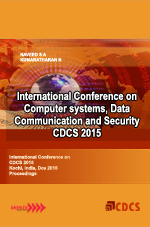Blockchain with Machine Learning
Conference: Sixth International Conference on Computer systems, Data Communication and Security
AbstractWhile machine learning algorithms have developed into effective tools for addressing\nreal-world issues, some have begun to doubt their reliability. First off, data poisoning assaults\nmay be a threat to machine learning systems. Hackers may attempt to modify system\nperformance by changing the data that has been gathered or by adding poisonous instances that\nthey have created. Second, if there are no traceable logs or training histories, it is challenging\nfor humans to comprehend judgments made by machine learning algorithms. Thirdly, finishing\nthe model training procedures still significantly depends on centralized servers. Finally, the\nsteps of model creation are not automated, and human involvement may introduce biases into\nthe final system. Smart contracts and blockchain technology have demonstrated a lot of\npromise in addressing these problems with a conclusion. The function of ML takes a lot of\ncomputing power and using them in real-time scenarios with IoT is difficult as IoT devices can’t\nhandle the high computations. Thus, MEC (Mobile Edge Computing) is a solution to the\nproblem as it can perform offloading of workload to the Edge of Internet thus making it\npossible for IOTDs to carry out their function. Blockchain Technology helps in data privacy\nand its decentralized and immutable properties make it the best option to store data. The\nnumber of applications that blockchain and machine learning provide is immense as mentioned\nfurther in the paper making it the finest choice for several use cases. |
CDCS - 2023
|
